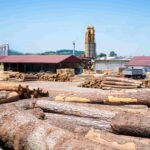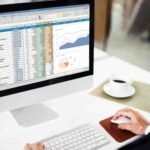Introduction to Odoo ERP for Renewable Energy Manufacturing and Its Role in Modern Operations
Manufacturing companies of renewable energy must keep up with the growing demand and operational complexity as the world quickly shifts to sustainable energy sources. Renewable manufacturing is more complex than ever, involving everything from monitoring environmental compliance to managing various product lines like solar panels and wind turbines. A single ERP system that streamlines processes, guarantees real-time tracking, and improves decision-making throughout the whole production lifecycle is necessary due to this complexity.
For renewable energy companies looking to modernise their operations, Odoo ERP has become a potent alternative. It provides a single digital workspace to simplify daily tasks with integrated modules for manufacturing, inventory, quality control, and compliance. Businesses may deploy Odoo with industry-specific configurations, attain a quicker return on investment, and successfully maintain compliance with energy standards and environmental rules by partnering with an odoo implementation service company.
Core Odoo Modules That Empower Renewable Manufacturers to Automate and Comply
Manufacturing (MRP): Automates the entire production process with real-time scheduling, work order tracking, and quality checks. It supports complex multi-level BOMs, making it ideal for assembling solar panels, wind turbines, and other renewable components efficiently.
Inventory Management: Streamlines the flow of raw materials and finished goods using barcode scanning, real-time stock updates, and automated replenishments. Enables traceability and just-in-time inventory for better production continuity and less waste.
Quality Management: Helps maintain high product standards through customizable quality control points, checks during each production stage, and non-conformance tracking to ensure defect-free output.
Maintenance: Schedules preventive and corrective maintenance for machinery to reduce downtime. Real-time dashboards and failure analysis features ensure uninterrupted production and asset longevity.
Project Management: Manages installation and commissioning tasks for renewable projects. Enables Gantt charts, task assignment, and budgeting features to ensure project timelines and costs are aligned with client expectations.
Compliance & Document Management: Centralizes regulatory documents and certifications. Automatically alerts for document renewals, environmental audits, and ISO compliance keeping renewable manufacturers ready for inspections and audits.
Advantages of Using Odoo ERP in Renewable Energy Manufacturing Operations
End-to-End Process Integration: From procurement to delivery, Odoo ERP unites all workflows into a single system. This full integration minimizes data silos and enhances collaboration between teams for smoother operations.
Real-Time Data Visibility: Live dashboards and reporting tools allow managers to monitor inventory levels, machine performance, and production status instantly. This helps make faster, data-driven decisions.
Scalable for Future Growth: Whether scaling up production capacity or expanding to new geographies, Odoo ERP adapts easily. Businesses can add new modules or users without disrupting current operations.
Improved Compliance and Reporting: With in-built document and audit trails, Odoo simplifies regulatory compliance. Automated logs and reminders ensure timely adherence to environmental and safety standards.
Reduced Operational Costs: Automation reduces manual effort and errors, resulting in cost savings. Better planning, real-time inventory updates, and reduced downtime lower production overhead.
Enhanced Supplier and Customer Management: The system provides better visibility into supplier performance and customer order tracking. This improves relationships, delivery timelines, and satisfaction levels.
Streamlined Maintenance Scheduling: Proactive maintenance schedules based on equipment usage prevent costly breakdowns. This ensures machinery is always ready and production is never stalled.
Operational Challenges in Renewable Energy Manufacturing That Demand Smart ERP Solutions
The renewable energy manufacturing sector faces unique operational hurdles that traditional systems struggle to manage. From sourcing specialized components to meeting strict industry regulations and fluctuating demand, businesses often deal with fragmented workflows, data silos, and inefficient production cycles. Managing procurement, inventory, and supplier coordination becomes increasingly complex as manufacturers scale across solar panels, wind turbines, or energy storage systems.
Managing Complex BOM Structures: Renewable products often require multi-level BOMs that change frequently. Manual management leads to errors, delays, and cost overruns without an ERP to automate and track changes.
Regulatory Compliance Pressure: Keeping up with global and local environmental standards is tough. Without centralized document control, businesses risk non-compliance and potential fines or shutdowns.
Inconsistent Inventory Levels: Fluctuating demand and irregular supplier timelines make inventory hard to manage. Overstocking leads to waste; understocking leads to production halts.
Machine Downtime and Maintenance Delays: Lack of preventive maintenance schedules often causes unplanned machine breakdowns, directly impacting production cycles and delivery timelines.
Project and Installation Tracking Issues: Renewable energy installations require accurate tracking. Without ERP integration, timelines, costs, and tasks become scattered across spreadsheets.
Data Silos Between Departments: Without a unified system, each department operates independently. This results in communication gaps, duplicated tasks, and poor decision-making.
Limited Visibility into Cost Structures: Many manufacturers struggle to track actual costs of production, especially in hybrid manufacturing setups. Without ERP, financial analysis is fragmented and inaccurate.
These challenges directly affect production timelines, quality control, and compliance with environmental and safety standards. Delays, errors, and inconsistent reporting can lead to costly setbacks and reduced customer satisfaction. This is where a smart ERP system like Odoo becomes essential. By centralizing operations, automating processes, and offering real-time data visibility, Odoo ERP enables renewable energy manufacturers to streamline production, ensure regulatory compliance, and reduce operational overhead. Implementing a tailored ERP solution isn’t just a digital upgrade—it’s a strategic move toward cleaner, smarter, and more agile energy manufacturing.
Why Odoo Is the Smart ERP Choice for the Future of Renewable Energy Manufacturing
A digital revolution is taking place in the renewable energy industry to satisfy growing demands, more stringent regulations, and the need for quicker project completion. Selecting an ERP that is flexible, adaptable, and agile, such as Odoo, guarantees that manufacturers are operationally effective and prepared for the future. Odoo ERP provides accurate and flexible support for all functions, including the manufacturing of solar panels, wind turbine assembly, and smart grid components.
Businesses must work with a reputable odoo implementation service provider who is aware of the specifics of the renewable industry if they want to fully utilise the potential of Odoo ERP. The correct implementation partner guarantees that your ERP accurately reflects business processes through skilled configuration, data migration, and module integration. Your renewable business will have a competitive edge in the quickly changing green economy thanks to this alignment, which maximises return on investment, reduces downtime, and frees up your staff to concentrate more on innovation and less on administrative complexity.








